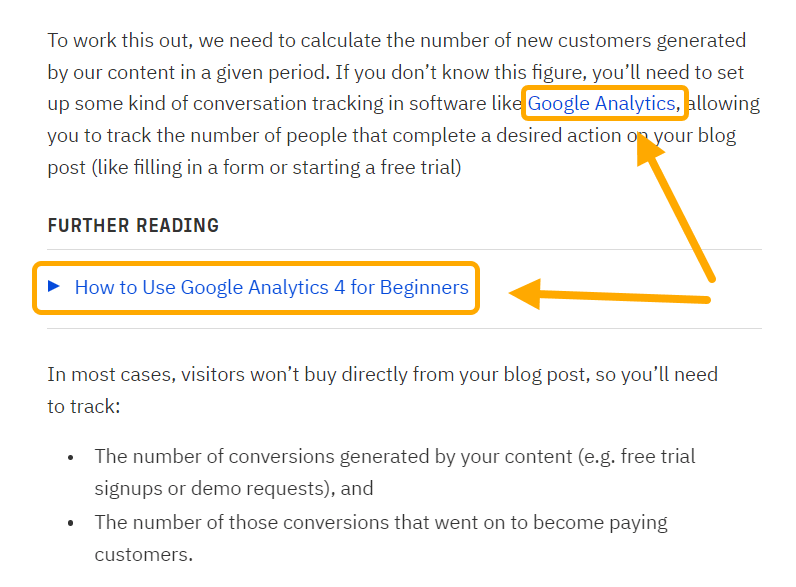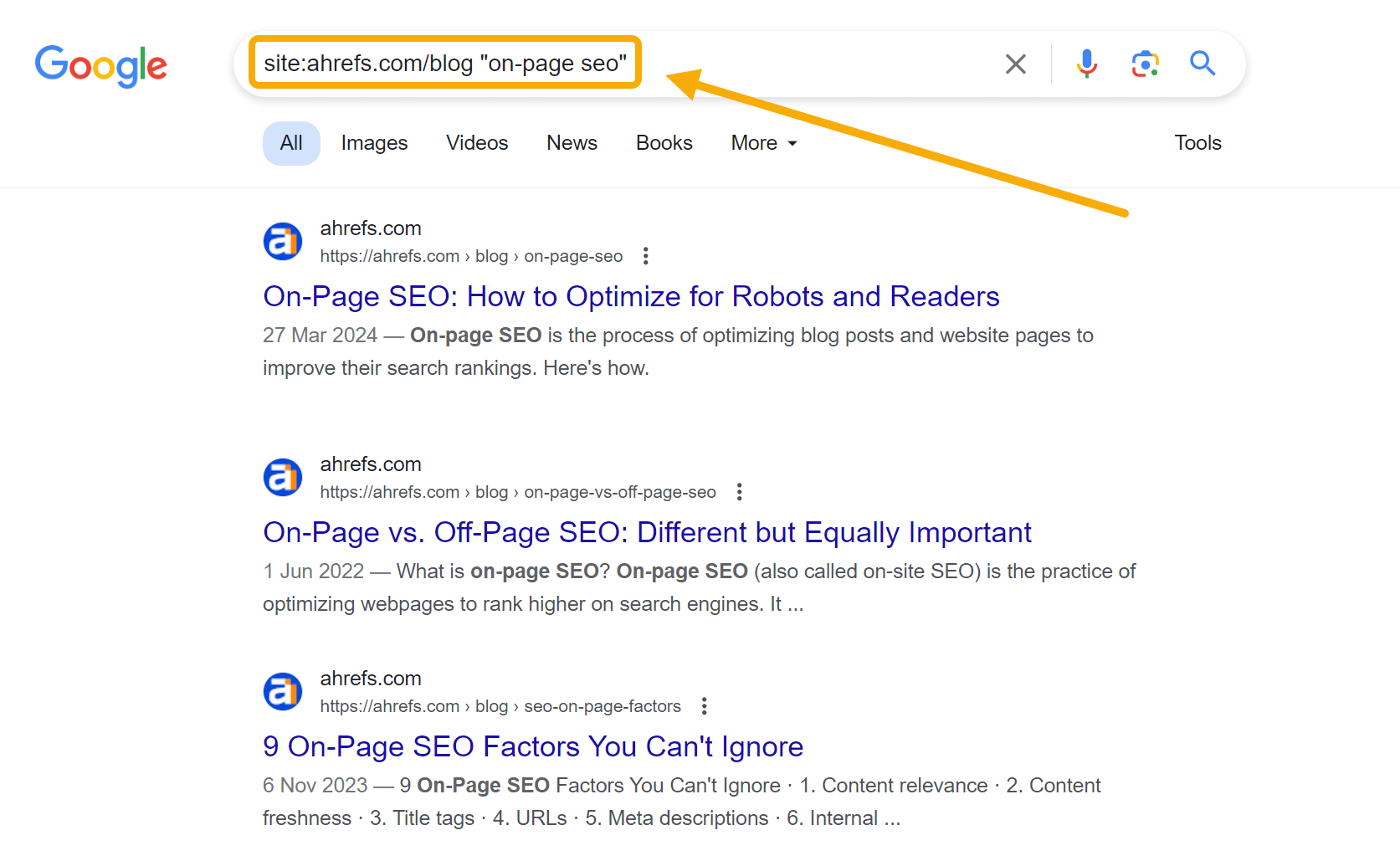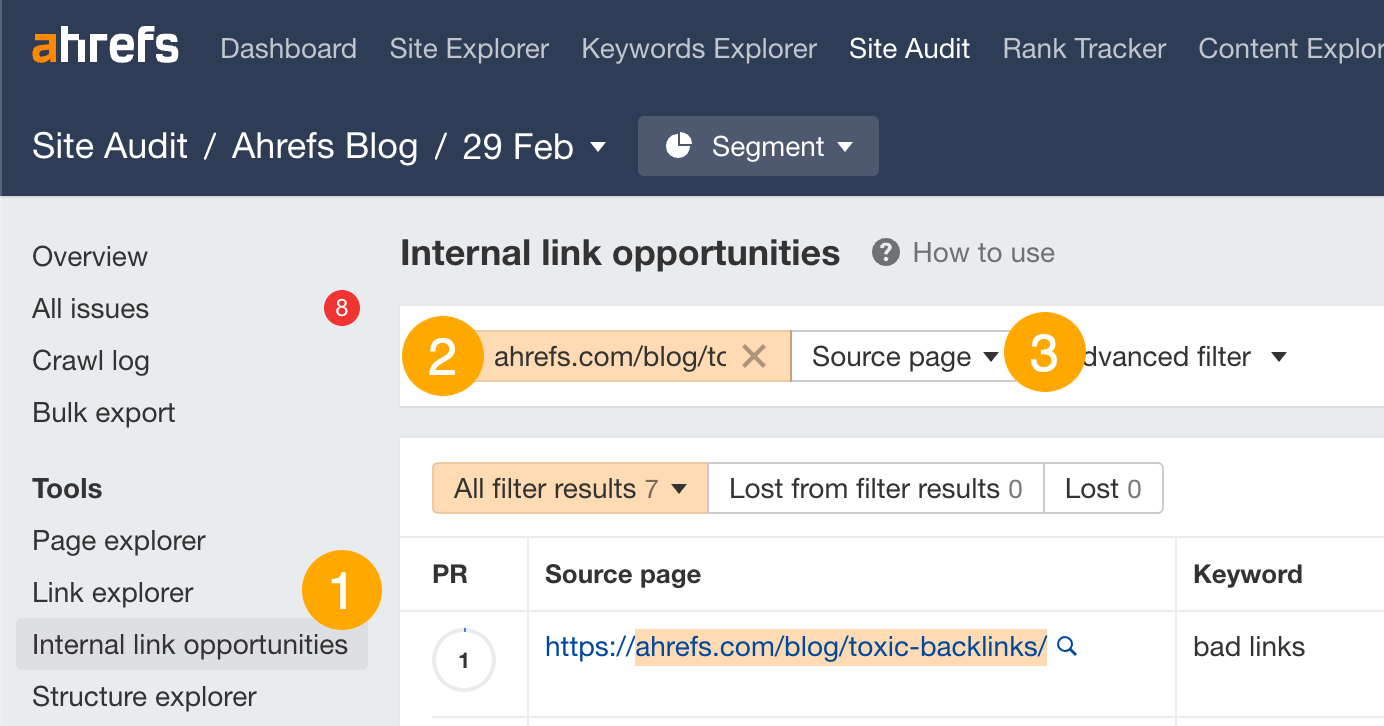If you have them, link to relevant pages on your website. Internal links help visitors navigate your website and increase the odds that they’ll find the information they need—but there are benefits for SEO too.

Internal linking helps search engines find all the pages on your website, understand what each page is about (and how they relate to one another), and highlight the pages you believe to be the most important. These links also help pass link authority between your pages.
When adding internal links:
- Use relevant anchor text—but keep it natural and don’t keyword stuff your anchors.
- Link to your most important pages, like your product and service pages, or your best blog posts.
- Use the hub-and-spoke model to ensure that your most important “hub” pages receive the link authority they deserve.
You can use Google’s site: search operator to quickly find relevant pages to link to. Search your website for your target keyword (in brackets to find exact matches), and Google will show every indexed page that features the keyword:

Or you can automate the process using Ahrefs’ Site Audit:
- Go to the Internal link opportunities report
- Enter the URL of your newly-published page in the search box
- Choose “Source page” from the dropdown
Hit enter, and you’ll see a list of recommended internal linking opportunities.

For example, here the report is suggesting that I link from our post on toxic backlinks to our guide on bad links:

Leave a Reply